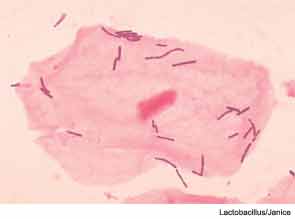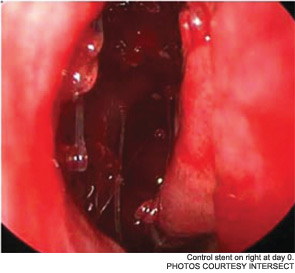Speech perception lower in older CI users; caseload volume predictor of thyroid surgery outcomes; younger patients with mucosal HNCA have better survival rates; CT scan use for diagnosing CRS remains steady
Literature Review: A Roundup of Important Recent Studies
Wide variation in maximal medical therapy for CRS; "sinus headache" diagnosis and treatment; hospital-acquired conditions after HN cancer surgery uncommon but costly; tympanoplasty plus mastoidectomy in perforations; transoral BOT resection effective for OSA; type 1 GPT improves vocal outcomes in GI

Literature Review: A Roundup of Important Recent Studies
Oral steroids in chronic rhinosinusitis; macrolide therapy for chronic rhinosinusitis; parotid gland lymphoma consideration in parotid lesion evaluation; better dialogues with patients may minimize liability in cranial nerve injury malpractice trials; obesity in children with OSA can lead to depression, withdrawal; many otolaryngologists dissatisfied with current sinus CT results
Literature Review: A Roundup of Important Recent Studies
MRI cost justified in dysosmia; ESS superior to medical therapy for QOL in CRS; First-line steroid therapy can improve outcomes for ISSHL; TORS total laryngectomy effective for salvage surgery; Cidofovir effective for recurrent respiratory papillomatosis; High-volume academic medical centers have lower complication rates for head and neck oncologic surgery

Is Topical Amphotericin B Efficacious in the Treatment of Chronic Rhinosinusitis?
Is there sufficient evidence to continue to recommend this treatment for patients diagnosed with CRS?

Restoring Microbial Balance Key to Keeping Sinuses Healthy
New research suggests that shifting bacterial populations may spur chronic rhinosinusitis

AAO-HNSF 2012: Choosing an Effective Topical Agent to Treat Chronic Rhinosinusitis
Otolaryngologists share their clinical observations on how to get the best results from using topical agents to treat chronic rhinosinusitis

Drug-Eluting Sinus Stent Hits the Market: May help maintain patency after FESS
Maintaining sinus patency after functional endoscopic sinus surgery (FESS) for chronic rhinosinusitis (CRS) has long been an issue; as many as 23 to 47 percent of patients require revision surgery after FESS. Now, a new drug-eluting, bioabsorbable stent manufactured by Intersect (Palo Alto, Calif.) is being billed as a “breakthrough treatment [that] improves outcomes for sinus surgery,” according to a news release from the company. The device, which received pre-market approval from the U.S. Food and Drug Administration (FDA) in August, has been studied since 2008. It is currently available in Texas, New York, Philadelphia, New Jersey, Atlanta, Ohio and Kentucky.
Concurrent Septoplasty Does Not Affect CRS-Specific Health-Related QOL
Are chronic rhinosinusitis (CRS)-specific health-related quality of life (HRQOL) outcomes affected by concurrent septoplasty performed during endoscopic sinus surgery (ESS) for medically refractory CRS? Background: Septoplasty is commonly performed during ESS. […]
Medical Management for CRS Improves QOL
In patients who have failed medical management for chronic rhinosinusitis (CRS), are there greater quality of life (QOL) outcome improvements with further medical therapy or endoscopic sinus surgery (ESS)? Background: Although […]
- « Previous Page
- 1
- …
- 4
- 5
- 6
- 7
- Next Page »